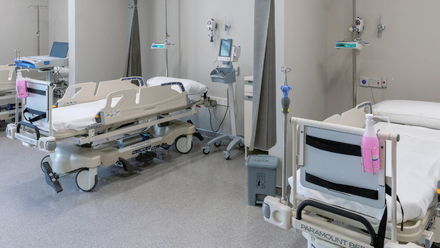The purpose of this guideline is to support implementation of the NHS England (NHSE) service specification, which describes the requirements for renal replacement therapy (RRT) as an interdependent service for adult critical care services. Accordingly, this guideline has been produced collaboratively by members of the Renal Association and British Renal Society, and Intensive Care Society, with patient review. The guideline will support critical care RRT resilience in the event of further Coronavirus Disease 2019 (COVID-19) surges or similar emergency states.
Severe acute illness is often complicated by acute kidney injury (AKI) and patients with chronic kidney disease (CKD) are at high risk of critical illness if they develop COVID-19. AKI is more common amongst patients hospitalised with COVID-19 than in patients hospitalised due to other illness. Furthermore patients with COVID-19-associated AKI (C19-AKI) sustain worse outcomes than those who develop AKI associated with other acute illnesses. Intensive Care National Audit and Research Centre (ICNARC) data indicates that 1 in 4 patients admitted to critical care in the United Kingdom due to COVID-19 require RRT with up to 80% mortality amongst these patients, compared to 44% amongst those not treated with RRT. Amongst survivors, RRT is associated with a much longer mean duration of critical care bed occupancy (30 days versus 9 days for those not requiring RRT).



